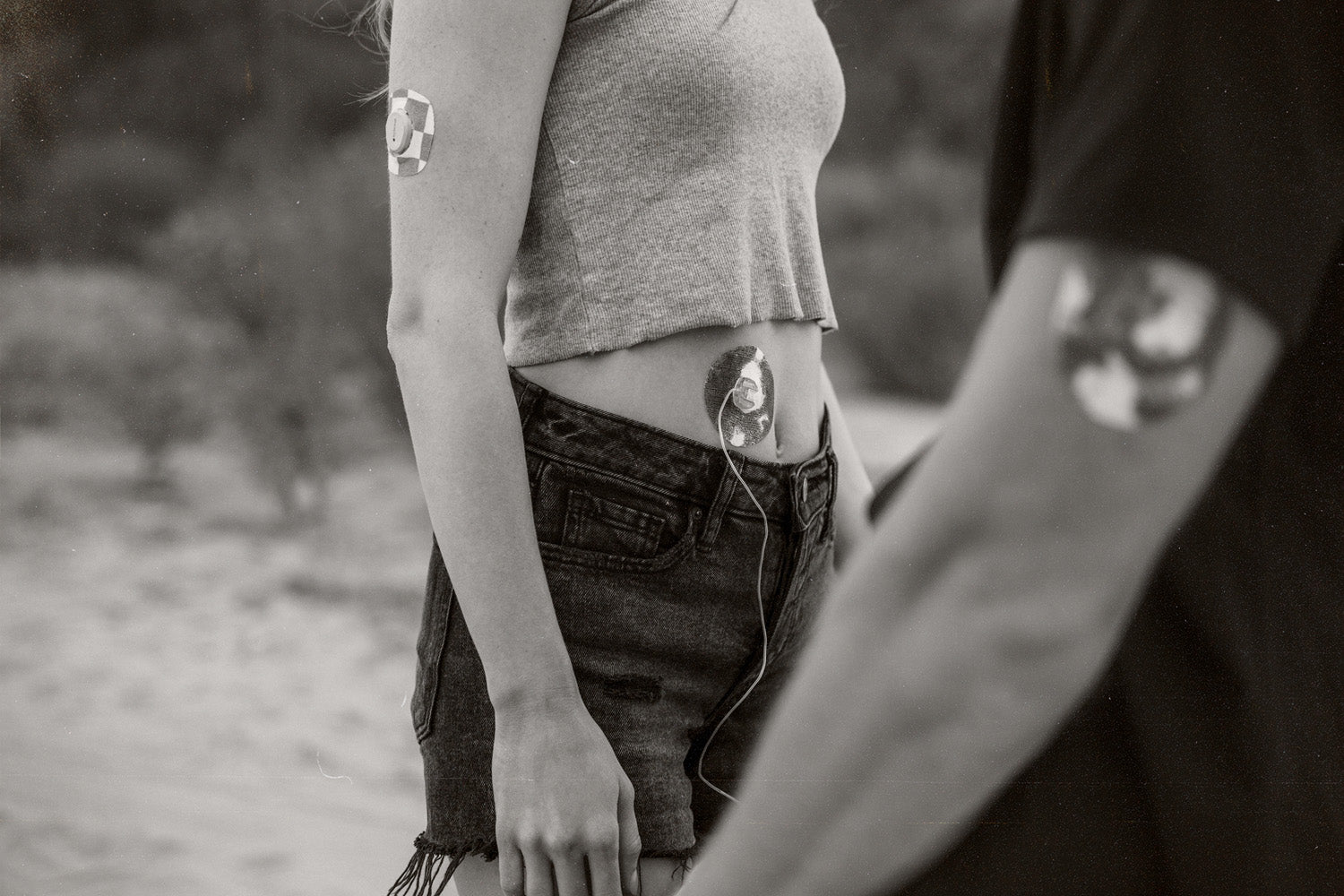
When someone you love is diagnosed with diabetes, it can feel like you are a helpless bystander in their diabetes diagnosis. You are witnessing first hand how the high and low blood sugars impact their personality. You may be losing sleep alongside them every time their blood sugar alarm goes off. You may spend hours worrying about whether or not they are safe and healthy. You can find yourself lost and confused about the best way to support your loved one when you can’t shield them from the unfortunate mental, physical and emotional impacts that follow a diagnosis of diabetes. This blog post will walk you through 3 ways that you can support your loved one with diabetes so you can offset the burden of a diagnosis for both you and your loved one.
Support with Food and Meals
Mealtimes are undoubtedly one of the biggest areas people with diabetes may need support with. But, the way you support your loved one might not be what you are thinking. Caregivers have the best intentions at heart, they know you love and care about them and only want the best outcomes for them. However when someone says something like “are you sure you can eat that,” or “can I get you something else?” is incredibly frustrating for people with diabetes. At the end of the day, it is your loved one’s choice whether they want to eat something or not. When you question their decisions, it can come across like you are doubting their decision making or that you know better than them.
So if you shouldn’t make comments about what your loved one chooses to eat, how can you support them? When it comes to your loved one choosing a food to eat, it is a calculated decision making process. They are thinking about their current blood sugar, calculating carbs, how much activity they completed that day amongst numerous other factors and sometimes they may need assistance with the process. Here are some ideas for you to utilize to support your loved one with meals:
- You can offer to look up the carb count for part of their order so they don’t have to look up every single item.
- If they are wrapped up in conversation and you notice that they didn’t dose, give them a polite reminder or gentle nudge.
- If you are cooking a new recipe, send it to them beforehand so they can look up the nutrition earlier than when the plate is in front of them (bonus if you do it yourself!).
- You can also work on your carbohydrate counting skills by using a food scale or measuring cups when portioning out their meals so they know exactly how much of each component is on their plate.
- Waiting to eat with your loved one while they wait for their insulin to start working or wait for a few minutes while they figure out how they want to dose for that meal.
Be Proactive
People with diabetes make more than 180 more decisions per day than the average person. Which means, they are bound to forget something at some point. When you are proactive about your loved one’s management, you are offering a gesture that you care about them and are thinking about them. Some ways that you can offer proactive support is:
- Keep low blood sugar snacks with you. Trust me- every person with diabetes has been in a situation where they didn’t have any more snacks on them when their blood sugar went low. If you carry around a juicebox, granola bar, or fruit snacks you will be prepared if/when this moment arises.
- If you notice that their blood sugar is going high instead of asking them “did you take your insulin?” try offering them a drink of water, a short walk outside, or taking time to ask what they need.
- When you notice that their insulin or other diabetes supplies are getting low, offer to call for them or do it yourself.
Be a Good Listener
One of the hardest things about diabetes is that even when you do everything “right,” you can still end up with an undesirable outcome. When your loved one spends hours each day on their management, it can be incredibly frustrating when things don’t go to plan. It is a heavy burden for them to carry alone and being the loving person that you are, you want to jump into action and help them. You start asking questions like when did you last eat? When did you take your insulin? Did you take a correction? How long ago did you take it?
As well intended your actions are, they may make your loved one feel even more at fault. Instead of asking them 20 questions about the situation, offer a listening ear and let them vent about how frustrating diabetes is. It will provide them with a safe-space to let out their frustrations without worrying that you will judge them. If you are ever unsure if your loved one needs help or a listening-ear, just ask them. They will be able to tell you what will be most comforting to them in the moment.
When someone you love has diabetes, you may not know what to do, what to say, or how to best support them. Check out Episode 29: This One’s for the Parents, Partners, and Supports of a T1D where host Lissie Poyner shares real-life examples to help caregivers gain clarity on what to do, what to say, and how to best support their loved one. Full episode is available now on Spotify and Apple Podcasts.






























